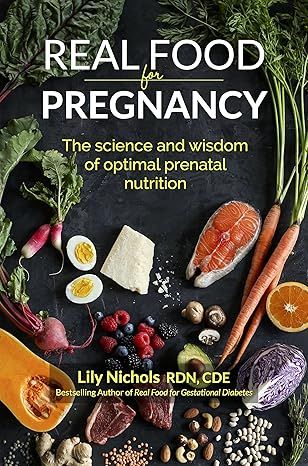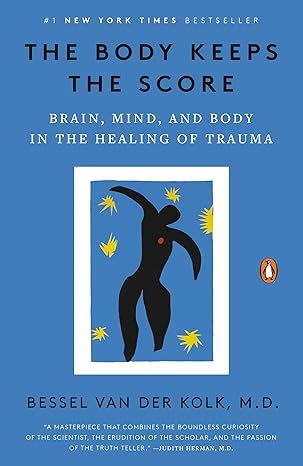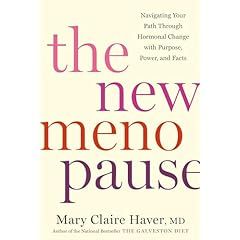Real Food for Pregnancy: The Science and Wisdom of Optimal Prenatal Nutrition
4.7
-
3,958 ratings
Prenatal nutrition can be confusing. A lot of the advice you’ve been given about what to eat (or what not to eat) is well-meaning, but frankly, outdated or not evidenced-based. In Real Food for Pregnancy, you’ll get clear answers on what to eat and why, with research to back up every recommendation. Author and specialist in prenatal nutrition, Lily Nichols, RDN, CDE, has taken a long and hard look at the science and discovered a wide gap between current prenatal nutrition recommendations and what foods are required for optimal health in pregnancy and for your baby’s development. There has never been a more comprehensive and well-referenced resource on prenatal nutrition. With Real Food for Pregnancy as your guide, you can be confident that your food and lifestyle choices support a smooth, healthy pregnancy.
Kindle
$9.99
Available instantly
Audiobook
$0.00
with membership trial
Paperback
$26.96
Ships from
Amazon.com
Payment
Secure transaction
ISBN-10
0986295043
ISBN-13
978-0986295041
Print length
348 pages
Language
English
Publication date
February 22, 2018
Dimensions
6 x 0.78 x 9 inches
Item weight
1.04 pounds
Popular highlights in this book
Consuming seafood—in particular, seaweed, scallops, cod, shrimp, sardines, and salmon—is a great way to meet iodine needs.
Highlighted by 1,715 Kindle readers
Fatty fish such as salmon, herring, and sardines (plus fish eggs or roe) provide the most concentrated sources of dietary DHA and are also low in mercury.
Highlighted by 1,585 Kindle readers
Replace your typical serving of grains with a serving of vegetables and/or a larger portion of meat or fish and you’re practically guaranteed to consume more B-vitamins, iron, magnesium, zinc, and calcium.
Highlighted by 1,003 Kindle readers
Product details
ASIN :
B079H8LL9L
File size :
4621 KB
Text-to-speech :
Enabled
Screen reader :
Supported
Enhanced typesetting :
Enabled
X-Ray :
Enabled
Word wise :
Enabled
Editorial reviews
"No one has dissected the research on prenatal nutrition--and done so in the context of ancestral diets--to the depth that Lily Nichols has in Real Food for Pregnancy. If you want an evidence-based rebuttal to the outdated prenatal nutrition guidelines, look no further." --Robb Wolf, 2x NYT Bestselling Author, Wired to Eat & The Paleo Solution
I'm so thrilled to read Real Food for Pregnancy. I absolutely love Lily's work. Her evidence-based approach to nutrition is not only relevant during pregnancy, but for the rest of your life! I think every birth professional (midwife, doula, etc.) should have a copy in their lending library for clients. --Rebecca Dekker, PhD, RN, Founder of Evidence Based Birth®
Real Food For Pregnancy should find its way into every medical school and prenatal clinic. Her first book, Real Food for Gestational Diabetes, is a staple in my teaching here at West Virginia University and has shifted how many in our department view nutrition. Lily's second book is encyclopedic; it's amazingly well-referenced and more in-depth than many textbooks. If mothers embrace Lily's advice, the next generation will hopefully suffer less obesity and diabetes." --Mark Cucuzzella MD FAAFP Professor West Virginia University School of Medicine
Sample
Chapter 1
Why You Should Have a Real Food Pregnancy?
“Whilst good nutrition is important at all life stages, it is increasingly recognised that the nutritional environment and individual experiences before birth and in early infancy is of particular importance for their later metabolic health, and that exposure to an inappropriate nutritional supply during critical windows of development can predispose an individual to obesity and type 2 diabetes later in life. By extension, the diet consumed by pregnant and breastfeeding women is a key determinant of metabolic health.” - Dr. Beverly Muhlhausler, University of Adelaide
There’s something miraculous about pregnancy. The fact that we have the power to literally grow a new human is still mind-boggling to me. When I was pregnant, I remember being keenly aware that all sorts of complex processes (both known and unknown in the scientific literature) were going on inside my body every second of every day. And I didn’t even need to consciously think about it; my body just knew what it was doing. It knew to create five fingers on each hand, where to place fingernails, where to grow hair, where the heart went, where each and every blood vessel should go, and on and on.
Sometimes this line of thinking—the idea that your body will take care of all the needs of fetal development without your input—is extrapolated to mean that you have no control over the trajectory of your pregnancy or the future health of your baby. Your body will just “do what it’s gonna do” and all you can do is hope you were dealt a good hand of cards and pass along good genes.
But that’s only partly true.
Allow me to share a quick metaphor. Anyone who has ever had a garden understands that when you plant a tomato seed, you can expect a tomato plant to grow (not a pea vine or a broccoli plant). The seed has the blueprints, and even if you’re not a very good gardener, that seed will grow given the bare essentials: some soil, water, and light. However, what separates a novice from a master gardener is their attention to optimal conditions. They have learned that amending the soil with nutrient-dense and microbe-rich compost will provide the plant with more of the raw materials for growth. They understand that there’s a sweet spot in the amount of water and light that helps a tomato plant not just survive, but thrive. Ultimately, they know that with a little TLC, they will have a healthier plant with vibrant green leaves and plentiful, delicious tomatoes.
This same line of thinking applies to pregnancy. Simply put, humans are wired to reproduce successfully. Even when conditions aren’t optimal, your body will do everything in its power to follow the blueprints and carry your precious baby to term. If that weren’t the case, there would be no way we’d have so many humans on the planet despite all sorts of common interferences, like malnutrition and toxin exposure. The problem is that chronic diseases are on the rise, especially among children, and a number of researchers have linked the development of things like heart disease, hormonal imbalance, diabetes, and obesity to exposures in utero. Unfortunately, it takes decades for this type of research to make it into clinical practice and public policies. That’s why you have to really search to connect the dots—and that’s exactly what I did while writing this book
Don’t get me wrong, there are a lot of things in pregnancy that are out of your control (your genetics, your age, your family history of disease, just to name a few). But, the things that are within your control—your diet, exercise, sleep habits, the way you handle stress, your exposure to toxins, and more—can have significant effects on your pregnancy and may leave a permanent imprint on your baby’s health. It’s called “fetal programming,” a decades old hypothesis (now well-studied and well-accepted in scientific research) which proposes that inadequate nutrition during pregnancy can impair the development of your baby and lead to lifelong metabolic changes that increase the risk of diseases, like heart disease, diabetes, high blood pressure, and the risk of obesity.
Though most of us view our genetics as a solid blueprint, researchers have found that genes can be turned on or off by certain exposures in utero, such as levels of nutrients, a mom’s blood sugar and insulin levels, exercise habits, stress hormones, toxins, and much more. That means that even if you think you have “bad genes,” you have the ability to minimize the impact of these on your baby with optimal nutrition and informed lifestyle choices. On the flipside, even if you have “good genes,” they could be turned off to some degree if your diet and lifestyle aren’t healthy.
When it comes to your experience of pregnancy, you have the power to lower your chances of developing gestational diabetes, preeclampsia, delivering prematurely, becoming anemic, and gaining too much or too little weight during your pregnancy, all by the way you live your life. How empowering is that?
Ask any pregnant woman and she’ll tell you the most important thing to her is to have a healthy baby and an easy pregnancy, so NOW is the time to do everything in your power to “stack the deck” in your favor.
Why Real Food?
When I first ventured into the world of prenatal nutrition, I was shocked by how little is actually known about fetal development. Researchers are still piecing together what exactly is happening and when. Believe it or not, we’re still uncovering which nutrients are needed, in what amounts, and at which stage in pregnancy. Even the recommended dietary allowances (RDAs), which tell you how much of each nutrient you require on a daily basis, are best guesses. Until we have better information (and perhaps we never will), we need another plan. One option is to look at the diets of traditional cultures who have long histories of having healthy babies and to learn from them. The work of Dr. Weston Price, a dentist and nutrition researcher from the early 1900s, found that traditional cultures prized certain nutrient-dense foods during the preconception and prenatal period. Dr. Price traveled the globe and investigated the dietary practices of numerous cultures, the nutrient-density of their foods, and their overall health. The groups studied included the Swiss, Gaelics, Eskimos, Malay tribes, Maori of New Zealand, Native Americans in Canada and the U.S., tribes in Eastern and Central Africa, Pacific Islanders (Polynesians and Melanesians), Australian Aborigines, South Americans of the Amazon basin, and ancient civilizations and their descendants in Peru. He found remarkable differences in the nutrient content of traditional foods compared to imported foods.
He also found that the health of these populations was a direct reflection of what they ate, noting that people who followed their ancestral diet remained disease-free and had robustly healthy children. In contrast, relatives who incorporated modern foods into their diet suffered more health problems, as did their children. Tooth decay, narrow palate, crooked teeth, deformities (like club feet and neural tube defects), poor immune health (higher rates of infectious diseases, like tuberculosis), psychological problems, and numerous other health problems were more prevalent in children of people who ate more “foods of modern commerce,” like sugar and refined grains, and less of their traditional foods. What struck me most about his work was that the negative consequences of a bad diet affected more than just their children, but also their children’s children.
Dr. Price’s observations have been replicated in animal studies and it’s now more widely accepted that exposure to positive influences like a nutrient-dense diet and exercise have beneficial effects on pregnancy outcomes, while exposure to toxins, stress, and processed foods have the opposite effect. There’s currently a whole field of research devoted to the study of what’s called “epigenetics,” or how your genes (or your children’s genes) are affected by your lifestyle choices and other exposures.
It was from reading Price’s research (and learning which foods were most prized in these cultures) that I began to question what I had been previously taught about prenatal nutrition in my conventional dietetics training. How could a low-fat diet be acceptable if it means the richest food sources of vitamin A, choline, iron, and zinc are limited? Traditional cultures did the exact opposite. Conventional nutrition heavily advocates for fortified foods in pregnancy—like cereal fortified with folic acid and iron—while frequently ignoring foods that are naturally good sources of those same nutrients. In fact, consumption of certain nutrient-dense foods, like liver and full-fat dairy, are commonly discouraged. How did traditional cultures ensure they had healthy pregnancies when fortified foods didn’t exist?
Modern nutrition research tends to isolate and study single nutrients instead of whole foods, resulting in a lot of attention given to prenatal vitamins or individual supplements. That approach—often called “nutritionism”—has never made much sense to me. Why not, instead, take the information we’ve learned from modern science and apply it to real food? In other words, let’s figure out which foods are naturally rich sources of the most important nutrients for fetal development instead of swallowing a bunch of pills. After all, nutrients work synergistically. Nature is not stupid. And a supplement is rarely superior to what’s available in real, whole foods.
That’s why my real food approach is to reverse engineer the perfect prenatal diet. We can take what we’ve learned from single-nutrient studies and combine it with what we know from traditional cultures.
The result? We have the best of both modern nutrition science and ancestral wisdom to help you “grow a healthy baby.” In the coming chapters, you’ll learn which foods, nutrients, and lifestyle habits to embrace and why—and which ones to avoid—so you can be assured that you’re doing everything within your power to have a healthy pregnancy. Like I said before, let’s “stack the deck” in your favor.
Read more
About the authors
Lily Nichols
Lily Nichols is a Registered Dietitian/Nutritionist, Certified Diabetes Educator, researcher, and author with a passion for evidence-based prenatal nutrition. Drawing from the current scientific literature and the wisdom of traditional cultures, her work is known for being research-focused, thorough, and sensible.
Her bestselling book, Real Food for Gestational Diabetes (and online course of the same name), presents a revolutionary nutrient-dense, lower carb approach for managing gestational diabetes. Her work has not only helped tens of thousands of women manage their gestational diabetes (most without the need for blood sugar-lowering medication), but has also influenced nutrition policies internationally. Lily's clinical expertise and extensive background in prenatal nutrition have made her a highly sought after consultant and speaker in the field.
Lily’s second book, Real Food for Pregnancy, is an evidence-based look at the gap between conventional prenatal nutrition guidelines and what’s optimal for mother and baby. With over 930 citations, this is the most comprehensive text on prenatal nutrition to date.
Lily is also creator of the popular blog, LilyNicholsRDN.com, which explores a variety of topics related to real food, mindful eating, and pregnancy nutrition.
Read more
Reviews
Customer reviews
4.7 out of 5
3,958 global ratings
Peter
5
The most important book of your pregnancy
Reviewed in the United States on June 23, 2024
Verified Purchase
I can't recommend this book enough to anyone who's pregnant. I attribute my easy pregnancy and uncomplicated birth specifically to how this book changed my eating habits. I was able to stop and then prevent muscle cramps, swelling, nausea and more just by learning about some specific nutrients that I could use some more of during that time. It was game changing to say the least. Not only is the book incredibly well researched, but it was a surprisingly easy read and never felt like a "what not to do" manual - rather it gave me more ideas of what to add into my diet to insure my baby and I were getting everything we needed. 10/10 recommend.
Read more
Amazon Customer
5
Love this Book!
Reviewed in the United States on May 22, 2024
Verified Purchase
My blood glucose levels were elevated during my first trimester. During my early appointments I notice this book at my OBGYN’s office and decided to look into it. Best decision ever! I read the book and followed the recommendations and meal plan and my sugar cravings and blood glucose levels dropped! The book helped clear up myths and I really like how she backs up a lot of her ideas with research. I have already recommended this book to my friends. Great book!
Read more
Olivia Thai
5
No more Googling “______ pregnancy” while pregnant!
Reviewed in the United States on June 14, 2024
Verified Purchase
This is a must-read for all pregnant moms and, I would imagine, birth workers. Real Food for Pregnancy is everything I never knew I needed.
Lily Nichols is absolutely brilliant. Everything written in this book is supported by science and cited studies as opposed to random folklore, old wive’s tales, and woowoo superstitions about what we should or should not be eating during pregnancy.
I, too, am tired and skeptical of the misinformed and outdated information from the internet, people on the street, and even OBGYNs. I’ve lived a (mostly) holistic lifestyle for nearly 20 years. “Let food be thy medicine” has been my motto for decades, and my twin IVF pregnancy only magnified that. Perhaps if I had read her other book about infertility, I could have avoided IVF altogether, which would have been ideal since I’m not an advocate for synthetic drugs in general.
Read more
Similar Books
Best sellers
View all
The Tuscan Child
4.2
-
100,022
$8.39

The Thursday Murder Club: A Novel (A Thursday Murder Club Mystery)
4.3
-
155,575
$6.33

Sapiens: A Brief History of Humankind
4.6
-
140,302
$13.49

The Butterfly Garden (The Collector, 1)
4.3
-
88,556
$9.59

Things We Hide from the Light (Knockemout Series, 2)
4.4
-
94,890
$11.66

The Last Thing He Told Me: A Novel
4.3
-
154,085
$2.99

The Perfect Marriage: A Completely Gripping Psychological Suspense
4.3
-
143,196
$9.47

The Coworker
4.1
-
80,003
$13.48

First Lie Wins: A Novel (Random House Large Print)
4.3
-
54,062
$14.99

Mile High (Windy City Series Book 1)
4.4
-
59,745
$16.19

Layla
4.2
-
107,613
$8.99

The Locked Door
4.4
-
94,673
$8.53



